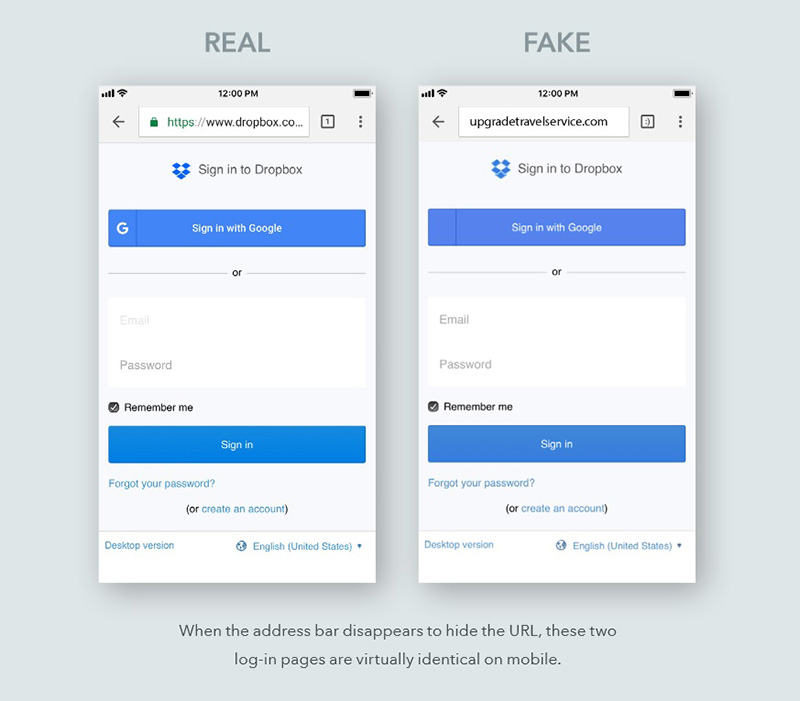How to Avoid Mobile Phishing.
People of all walks of life need to know how to avoid mobile phishing. Because phones are more and more common to be the main way we communicate and surf the web, criminals are developing new ways to trick users. This makes it important to stay vigilant for these threats.
I thought phishing was a computer issue?
While phishing may have started on computers and phone calls, attackers are finding mobile phones to be an excellent target. Most people who use mobile phones for day-to-day tasks are not aware of the threats. People often only expect phishing to come from emails and scam calls.

The mobile security company Lookout recently released their findings on mobile phishing. Their report shows that mobile phishing attacks went up 85% year after year from 2011 to 2016. And during the same time period, 56% of their users clicked a phishing link.
All this data shows how common these scams are, and how important it is to learn how to avoid mobile phishing.
So how do phishers attack my cell phone?
On cell phones, phishers have many options to trick users. Email messages, texts, and even specially formatted websites take advantage of cell phones.
The US Consumer Device Preference Report by MobableInk found that people open 66% of their email on mobile devices. And because personal email (Such as Gmail and others) is not as easily filtered, attackers are happy to exploit this method. This means email is still an important phishing method to watch for.
But phishers can also use text messages. Most people are smart enough not to click links in texts from people we do not know, but what about when the sender looks familiar? Phishers often spoof legitimate contacts to make their message look like it came from someone you trust.
Finally, phishers often format web addresses to take advantage of cell phones. Links to their fake login screens often look much like the correct website, but really rely on you not seeing enough of the address in your phone’s browser.
These methods (and a many others) help phishers trick people like you into giving them access to your accounts.
So what should I look for to avoid mobile phishing?
Awareness is the key to avoid mobile phishing. Most of these tricks rely on you not thinking things through. Many of these schemes use shock factors to try and get you to click. But now that you know it’s going on, you can remain calm and avoid getting caught.
Look for outlandish claims or unusual messages from friends. A common scheme has phishers sending you a message saying they saw you in some video online. But clicking on the link takes you to a log in page for Facebook or YouTube instead of the official app.
Pages like these may look genuine, but be sure to fully check the URL in your browser. Many mobile browsers hide the URL to give you more reading space on your phone. This feature is handy, but many phishing sites count on you not noticing that you’re actually at “Fakebook.com”.

Other phishing pages take advantage of mobile devices too. It may look like “Facebook.com”, but in actuality be “Facebook.com—————BadSite.xyz”. URLs like these use the small browser window on phones to hide their true identity.
Ultimately, the most important thing is to watch for these scams and be suspicious of unusual activity.
Are there tools that can help me avoid mobile phishing?
Yes! As a matter of fact, there are many great apps to help you avoid phishing schemes. Lookout, ESET, and many other companies offer these services, but it can be challenging to find the right tool for your business.
If you need help, Astria is happy to offer consultations. We’ve helped many New Mexico businesses find the software that meets their needs and their budget. Our consultations look at your specific needs to bring you the best overall security on your mobile devices. Contact us here for more information!
No matter if you use anti-phishing apps or not, it is important to stay aware of these schemes. Our blog is here to share these scams with you and keep you up to date, so that you aren’t the next victim. Remember, you need to avoid mobile phishing schemes or risk criminals accessing your sensitive data.






